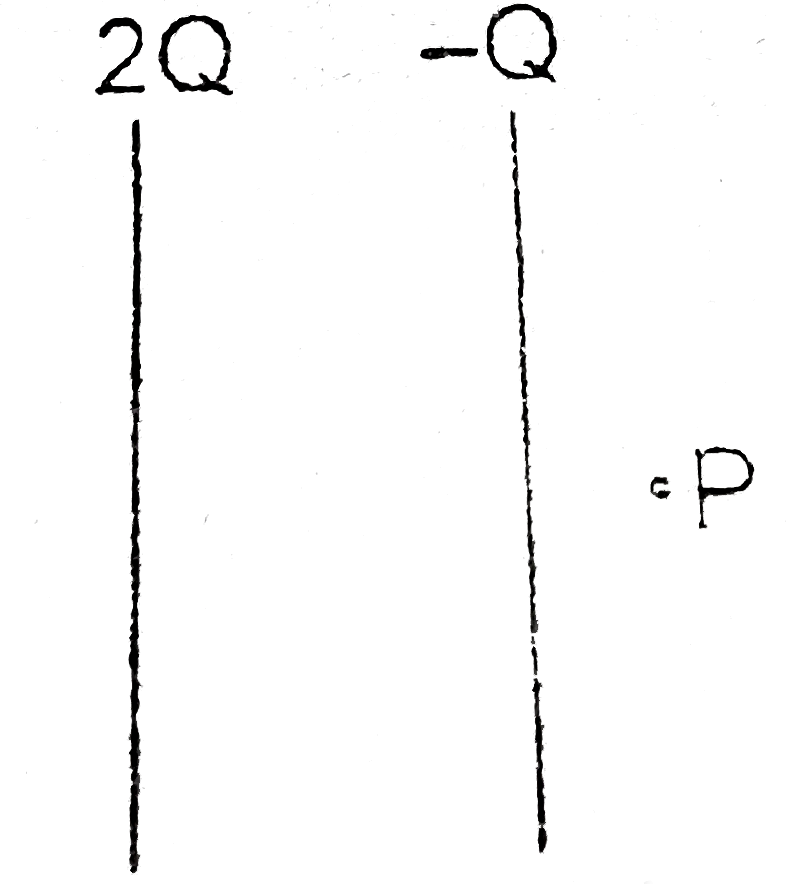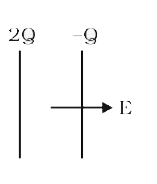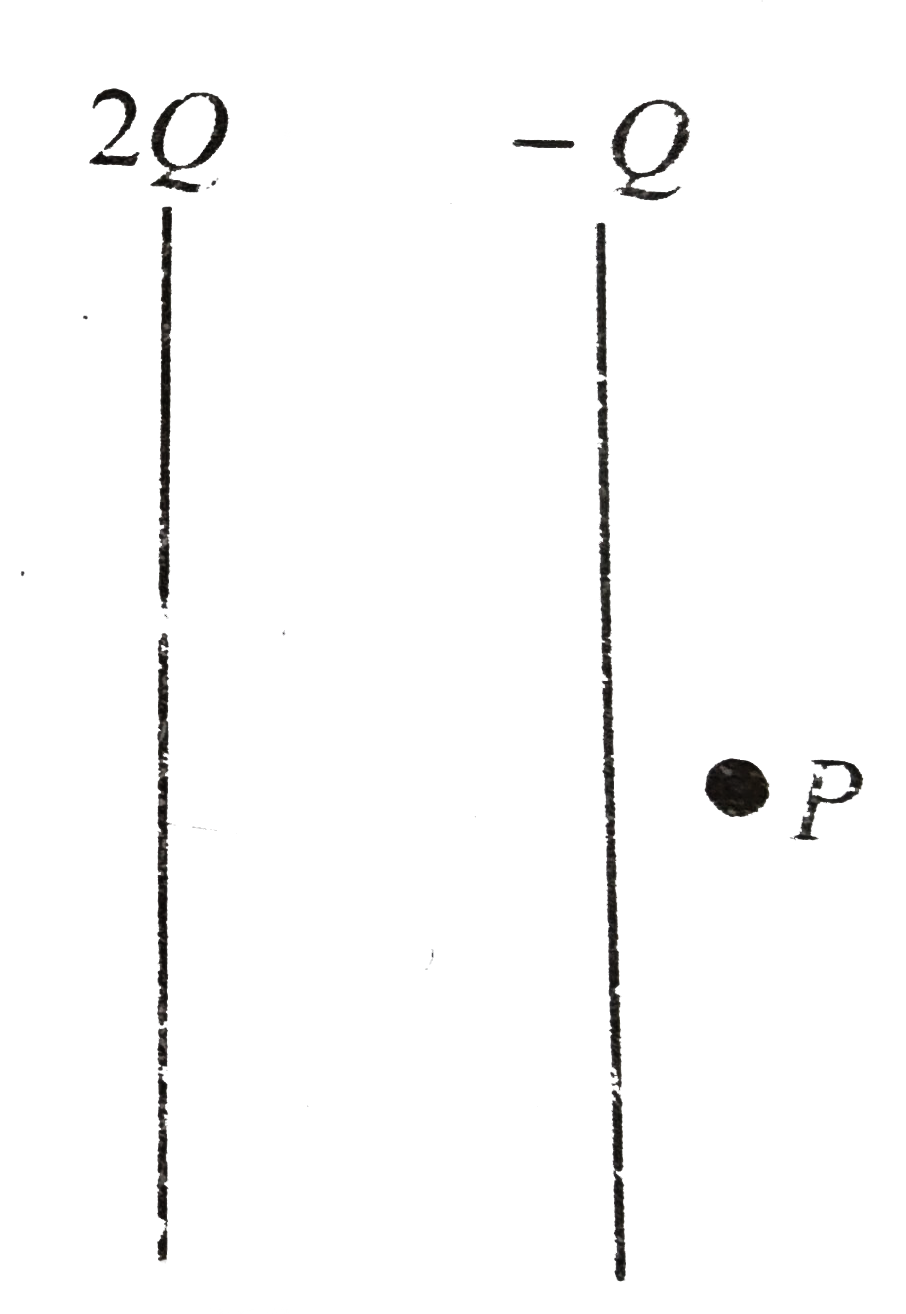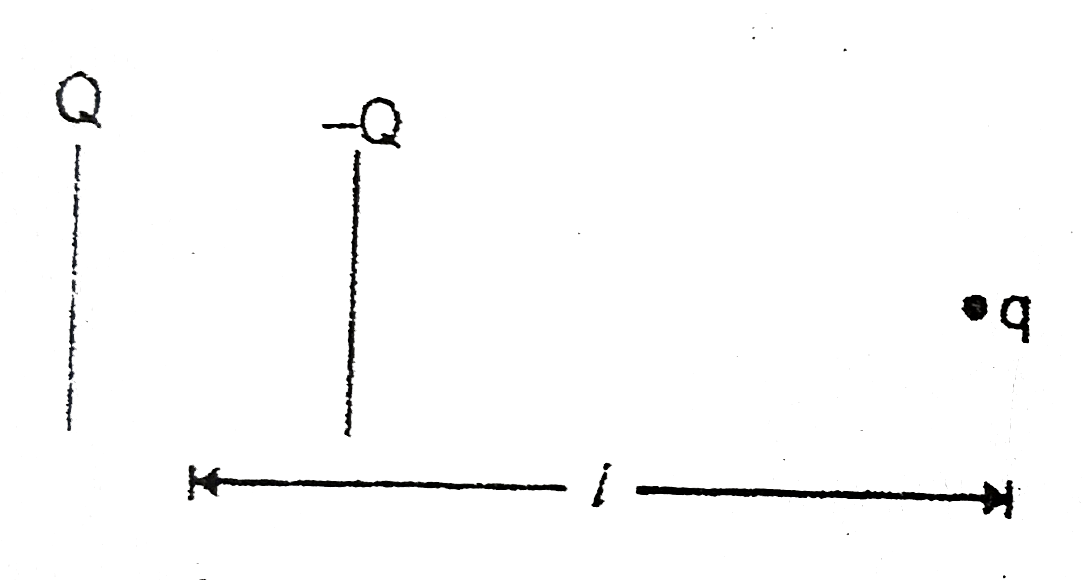In the figure shown the plates of a parallel plate capacitor have unequal charges. Its capacitance is 'C' P is a point outside the capacitor and close to the plate of charge −Q. The distance between the plates is 'd'

A point charge at point ‘P’ will experience electric force due to capacitor
The potential difference between the plates will be 3Q2C
The energy stored in the electric field in the region between the plates is 9Q28C
The force on one plate due to the other plate is Q28C
The correct Answer is:A, B, C
Energy =12ε0E2Ad=12ε0(3Q2Cd)2Ad=98Q2C

Similar Questions
Knowledge Check
In figure , the plates of a parallel plate capacitors have unequal charges. Its capacitance is C. P is a point outside the capacitor and close to the plate of charge -Q. The distance between the plates is d. Then
 Aa point charge at point P will experience electric force due to the capacitorsBthe potential difference between the plates will be 3Q/2C.Cthe energy stored in the electric field in the region between the plates is 9Q2/8C.Dthe force on one plate due to the other plate is Q2/2πε0d2.
Aa point charge at point P will experience electric force due to the capacitorsBthe potential difference between the plates will be 3Q/2C.Cthe energy stored in the electric field in the region between the plates is 9Q2/8C.Dthe force on one plate due to the other plate is Q2/2πε0d2.As the distance between the plates of a parallel plate capacitor decreased
Achances of electrical break down will increases if potential difference between the plates is kept constant.Bchance of electrical break down will decreases if potential difference between the plates is kept constant.Cchance of electric break down will increases if charge on the plates is kept constantDchance of electrical break down will decrease if charge on the plate is kept constant.In a parallel plate capacitor, the capacitance
Aincreases with increase in the distance between the platesBdecreases if a dielectric material is put between the platesCincreases with decrease in the distance between the platesDincreases with decrease in the area of the plates
A parallel plate capacitor C has a charge Q. The actual charges on its plates are
View SolutionTo reduce the capacitance of parallel plate capacitor, the space between the plate is
View SolutionA parallel plate capacitor is charged. If the plates are pulled apart
View SolutionThe plates of a parallel plate capacitor are, not exactly parallel. The surface charge density therefore :
View SolutionThe plates of small size of a parallel plate capacitor are charged as shown. The force on the charged particle of 'q' at a distance 'l' from the capacitor is : (Assume that the distance between the plates is d<<l)

View Solution
